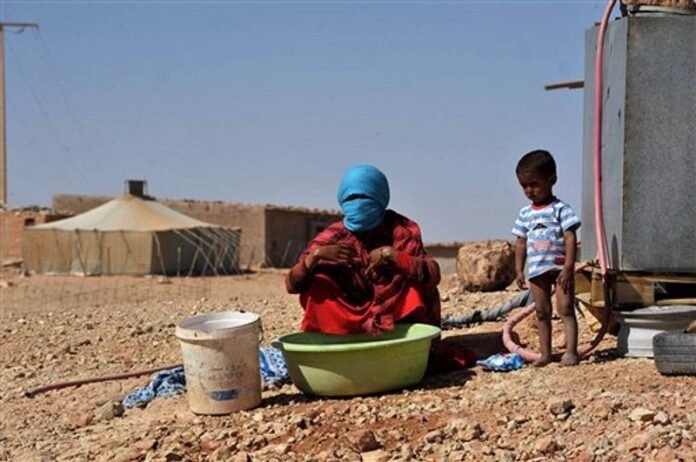Algeria’s refusal to allow an accurate census of the residents of the Tindouf camps, located on its territory, raises renewed questions about the motivations behind this position, especially in light of repeated calls from the United Nations and human rights organizations for such a census. This obstinacy highlights what appears to be systematic attempts to inflate the announced numbers of the camp population, opening the door to questions about the fate of international aid that was supposed to improve the conditions of the Sahrawis held there.
Missing census and disastrous conditions
The United Nations High Commissioner for Refugees has long called for a transparent census to determine the actual needs of the Tindouf camp residents. However, Algeria’s refusal continues, raising doubts about the political exploitation of this issue, with Algeria and the Polisario Front using these camps as an international leverage at the expense of the suffering of the inhabitants.
International reports point to deteriorating living conditions in the camps, despite the large flow of humanitarian aid over decades. Meanwhile, uncertainty persists about the fate of these funds, as there is no oversight mechanism ensuring that they reach the actual beneficiaries.
Conflicting numbers: between reality and declaration
Experts believe that the discrepancy between the official numbers and field estimates reflects attempts to inflate the actual number of residents. While objective estimates suggest that the camp population ranges from 20,000 to 30,000 people, Algeria and the Polisario insist on numbers exceeding 100,000, which serves their political agendas.
Issam Oujil, an expert on the Moroccan Sahara issue, noted that inflating the numbers helps attract more international aid, which is used to maintain influence rather than improve the conditions of the inhabitants. He believes that Algeria is trying to block any effort to document the actual numbers because it fears revealing the truth, particularly about the origins of the residents, some of whom may not be from Morocco’s southern provinces.
Algeria’s contradictory stance: a party in the conflict or a humanitarian advocate?
Despite Algeria’s insistence on distancing itself from the Sahara conflict, its direct control over the Tindouf camps reflects the opposite. Hicham El Ibrahimi, a researcher on the Moroccan Sahara issue, believes that Algeria uses the camp residents as a political tool, controlling their fate, which makes it the primary party responsible for violating their fundamental rights.
Questions that need answers
- Why does Algeria insist on inflating the population figures, despite evidence showing the contrary?
- How does Algeria justify the continued deterioration of living conditions in the camps despite the massive international aid?
- What happens to the funds and aid meant for the residents, and is there effective oversight over their use?
- Could a census reveal facts that would change the political equation regarding the Moroccan Sahara issue?
The solution: between transparency and accountability
In light of these findings, calls for an international census of the Tindouf camp residents and the establishment of stringent control mechanisms to ensure that aid reaches those who need it are gaining momentum. The international community must also press Algeria to meet its legal and humanitarian obligations, especially with the increasing support for Morocco’s autonomy plan as a practical and sustainable solution to the conflict.
The question remains: will Algeria face the facts and open the door to transparency, or will the Tindouf issue remain hostage to political calculations?


